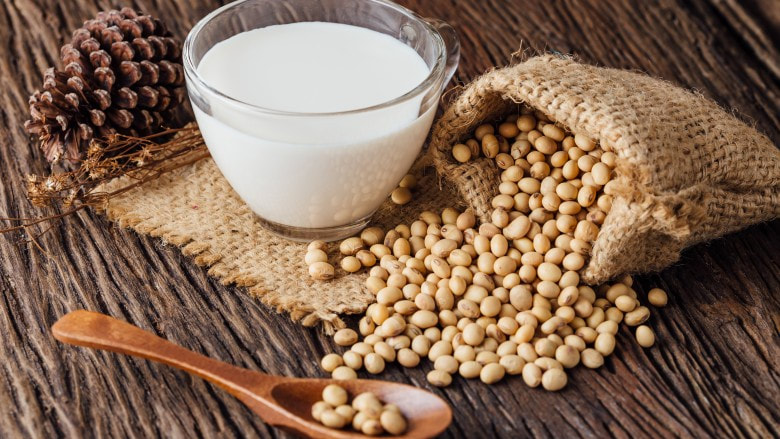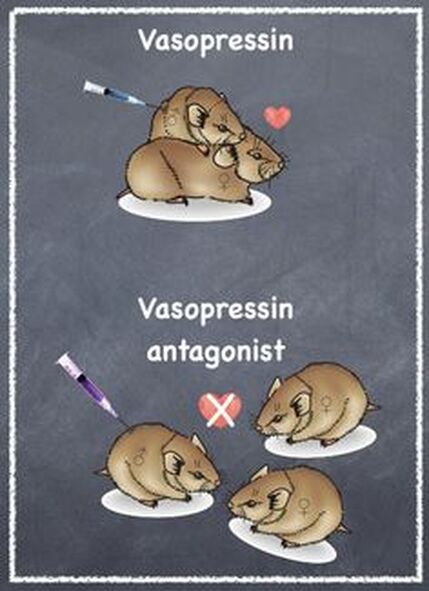Dietary exposure to soy products produces genistein in humans and it increases vasopressin - a chemical in our brain that is widely linked to behaviour that produces long-term, faithful monogamous relationships among couples.
Genistein is a plant-derived estrogenic isoflavone commonly found in soy-based products such as soymilk and soy-based dietary supplements for treating menopausal symptoms, for example. Vasopressin is a neurosecretory nonapeptide synthesized primarily in neurons of the hypothalamus and secreted into the bloodstream from the posterior lobe of the pituitary.
Genistein is a plant-derived estrogenic isoflavone commonly found in soy-based products such as soymilk and soy-based dietary supplements for treating menopausal symptoms, for example. Vasopressin is a neurosecretory nonapeptide synthesized primarily in neurons of the hypothalamus and secreted into the bloodstream from the posterior lobe of the pituitary.
Chemicals at work during romantic love are oxytocin and vasopressin, hormones that have roles in pregnancy, nursing, and mother-infant attachment. Released during sex and heightened by skin-to-skin contact, oxytocin deepens feelings of attachment and makes couples feel closer to one another after having sex. Oxytocin, known also as the love hormone, provokes feelings of contentment, calmness, and security, which are often associated with mate bonding. Vasopressin is linked to behaviour that produces long-term, monogamous relationships. The differences in behaviour associated with the actions of the two hormones may explain why passionate love fades as attachment grows.
Vasopressin and wound healing - Women with high levels of vasopressin also had faster wound repair than women with lower vasopressin and men. Women with menopausal pain also suffered lesser when they have higher levels of vasopressin.
Vasopressin and wound healing - Women with high levels of vasopressin also had faster wound repair than women with lower vasopressin and men. Women with menopausal pain also suffered lesser when they have higher levels of vasopressin.
Marital Behavior, Oxytocin, Vasopressin, and Wound Healing by Jean-Philippe Gouin, C. Sue Carter, Hossein Pournajafi-Nazarloo, Ronald Glaser, William B. Malarkey, Timothy J. Loving, Jeffrey Stowell, Janice K. Kiecolt-Glaser and the Harvard Mahoney Neuroscience Institute: "Love & the brain" and Nature. 1993 Oct 7;365(6446):545-8. "A role for central vasopressin in pair bonding in monogamous prairie voles." by Winslow JT1, Hastings N, Carter CS, Harbaugh CR, Insel TR.
| If you like what you read, follow us on Facebook to get the latest updates. |





 RSS Feed
RSS Feed
